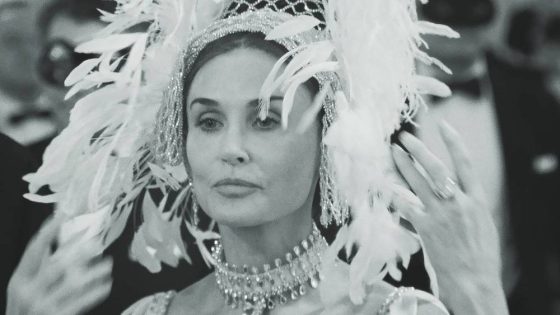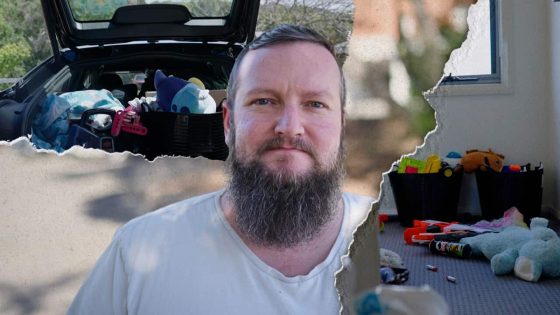In the ’70s, socialite Ann Woodward lived an afflicted life. That’s one of the first things Demi Moore learned about the former showgirl and model when tasked with portraying her for FX’s “Feud: Capote vs. the Swans.” Creator Ryan Murphy had called with the offer and before Moore read anything, she told him, “Whatever it is, I’ll do it.”
And she never looked back. Moore first dove into Laurence Leamer’s 2023 book that the series was based on to learn more about Woodward, determined to make sure her portrayal was accurate — and that she knew what really happened. In 1955, Woodward shot and killed her husband after thinking he was a burglar. The jury ruled the death an accident, but the speculation over whether that was true, along with the ostracism it triggered, tormented her every day.
“Was it an accident, or was it murder? For me, it was really important to make sure, from what I was playing and where I was coming from, that it was accurate and in the truth of what I could find out, which in fact, that it was an accident,” says Moore. “So that way, I wasn’t perpetuating some kind of salacious gossip because there are family members still alive. There’s a certain integrity you need and a fine line you need to walk.”
In 1975, Woodward took her own life after reading that Capote accused her of murder in an early excerpt of his book, published in Esquire magazine.
While a big part of getting into Woodward’s mindset was the physical transformation — “the hair, the makeup, the clothes, it affects everything,” says Moore — the research was what informed her emotionally.
“What were the important things? What were the goals and things she was living for? So much was about externalized validation, which I think no matter who we are, we all understand that. We all have some relationship to wanting to be seen, acknowledged,” says Moore. “Emotionally, the depth of her wounding felt so old, as if it had left her with latent emotional development, as if she was still dealing with mean girls from high school … She had such a hole and an emptiness in her.”
Luckily, being on set with “powerhouse” women like Naomi Watts, Diane Lane, Chloë Sevigny, Jessica Lange and Molly Ringwald, Moore felt the opposite. “How often do you get to see three women, let alone seven? To just be in the company of such talented , creative artists that are my peers was just a delight,” she says, before adding, “We were playing our ages!”
That last part is extremely important; Watts recently shared that she was once told her career would be “over” at age 40 because that’s when you become “unfuckable.” Luckily, the industry has improved for women … sort of.
“It has shifted. There’s evolution that has occurred, even, I would say from when I was 40. Because when I was 40 but didn’t look like what they imagined 40 should look like, they didn’t know what to do with me,” Moore says. “I didn’t actually work that much, because I wasn’t 20 or 30. I think if we really look at the deeper crux of this, what we’re looking at is this old idea that women’s value and desirability was tied to their fertility.”
She explains that once women reach a certain age, “it was as if there was shame attached to being sexual or having desire, because it was only tied to it being for the purpose of it versus the independence of it. So I think as we have taken greater ownership of ourselves in this way, I think we’re also seeing it reflected.”
And she’s not done. Moore is passionate about this: “Who’s to say that somebody’s not sexy? It was really something that was tied to that time period of a woman’s life. I think we’re kind of debunking these rules.”
Source Agencies



